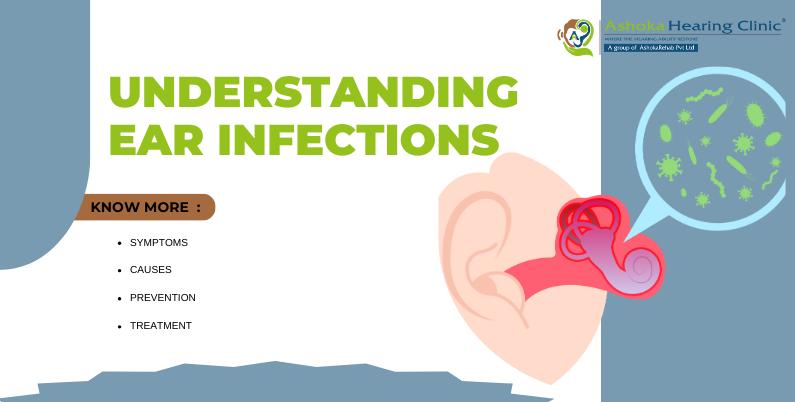
An ear infection, medically known as otitis media, occurs when bacteria or viruses invade the middle ear, causing inflammation and fluid buildup. There are three main types of ear infections:
Recognizing the symptoms of an ear infection is crucial for timely intervention. Common signs and symptoms include:
– Ear pain or discomfort, which may worsen when lying down.
– Fluid drainage from the ear.
– Difficulty in hearing or temporary hearing loss.
– Fever, especially in children.
– Irritability or fussiness in infants and young children.
– Loss of appetite.
– Balance problems or dizziness.
Several factors can contribute to the development of ear infections:
While some risk factors for ear infections, such as age and anatomical structure, are beyond our control, several preventive measures can reduce the likelihood of developing them:
Treatment for ear infections varies depending on the severity and type of infection. In many cases, mild ear infections may resolve on their own without the need for antibiotics. However, if symptoms persist or worsen, medical intervention may be necessary. Treatment options may include:
At Ashoka Hearing Clinic, we understand the impact that ear infections can have on your quality of life. Our team of experienced audiologists is dedicated to providing comprehensive care for individuals of all ages suffering from ear-related issues.
Through thorough evaluations, advanced diagnostic techniques, and personalized treatment plans, we strive to alleviate your symptoms and restore your hearing health. Whether you’re seeking preventive care, treatment for an acute infection, or management of chronic ear conditions, we’re here to support you every step of the way.
Don’t let ear infections disrupt your life any longer. Contact Ashoka Hearing Clinic today to schedule a consultation and take the first step toward better ear health and overall well-being.
Experience superior hearing care with Ashoka Hearing Clinic, where personalized solutions meet advanced technology for optimal auditory health.